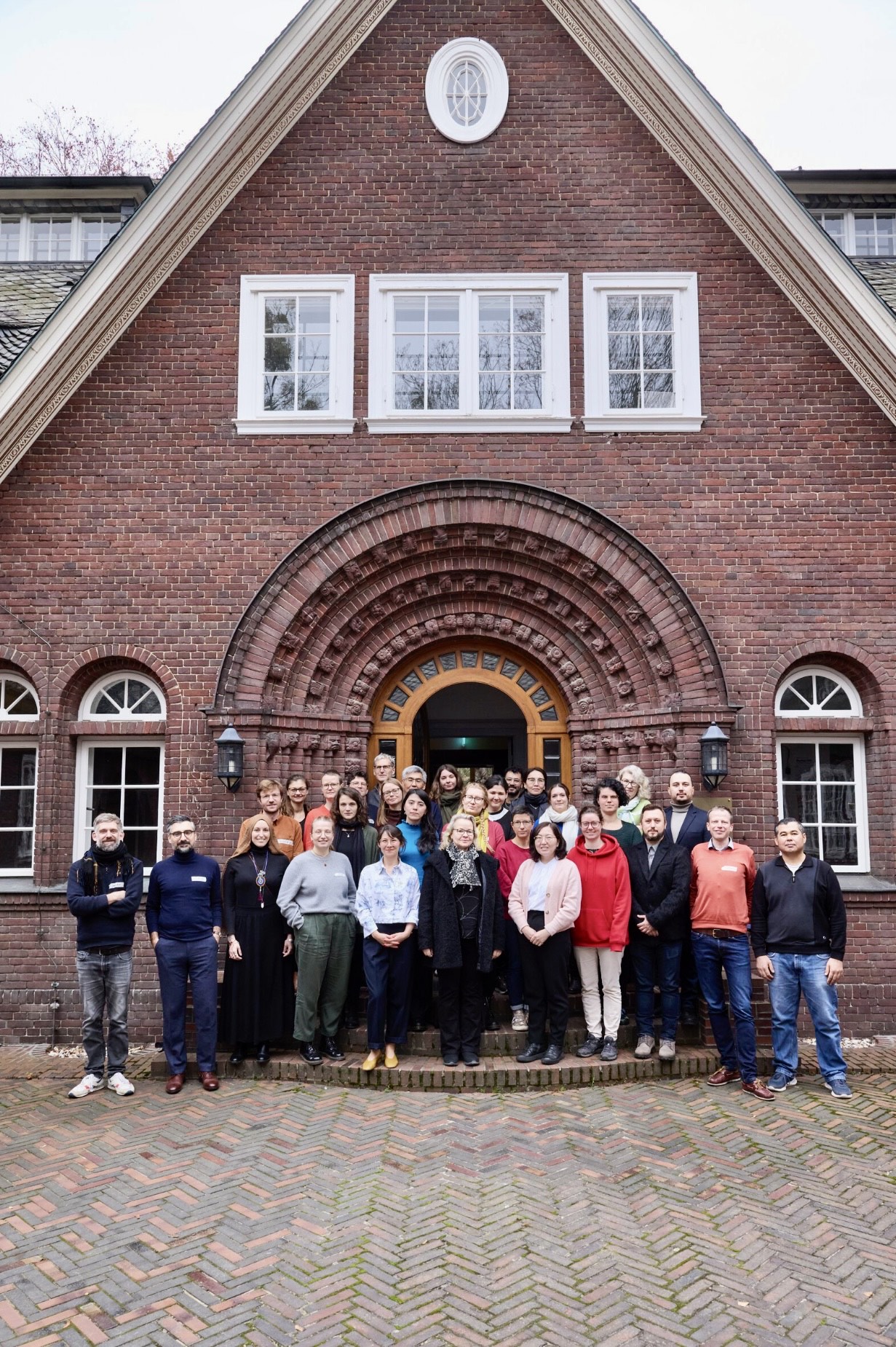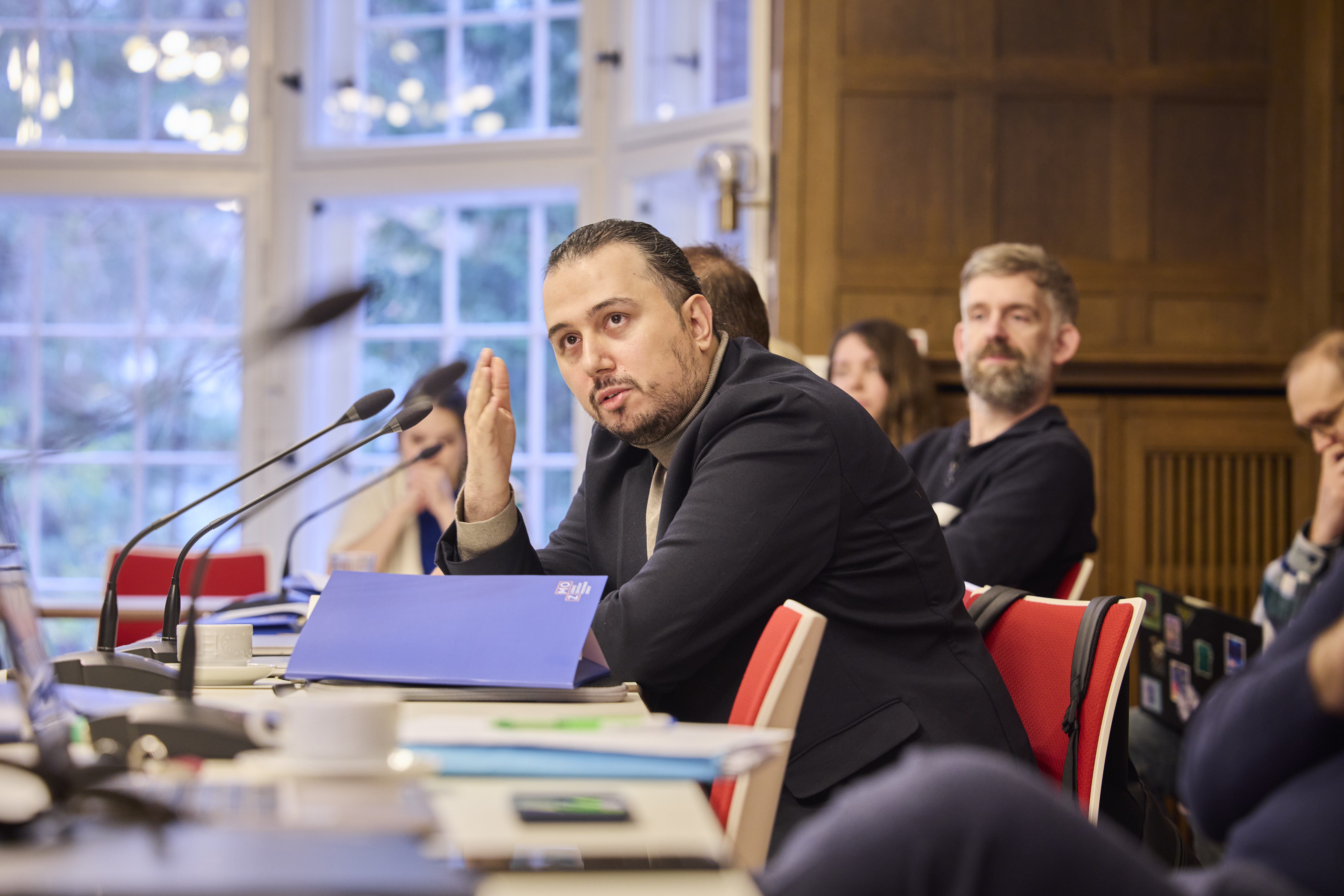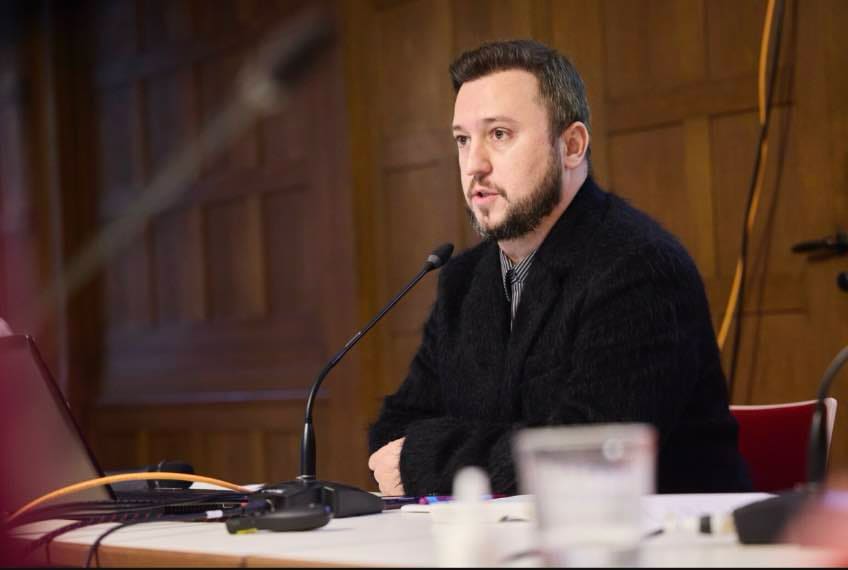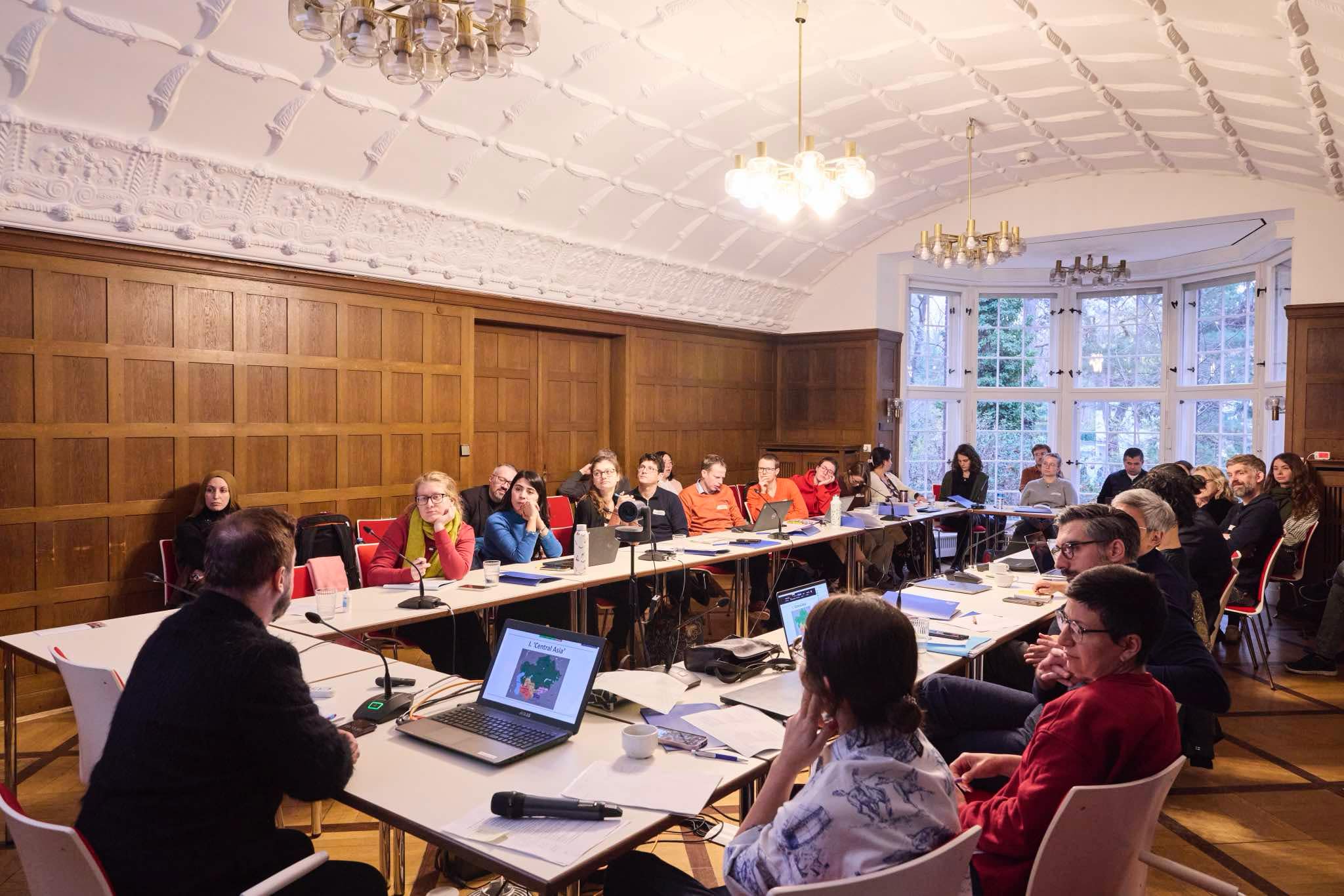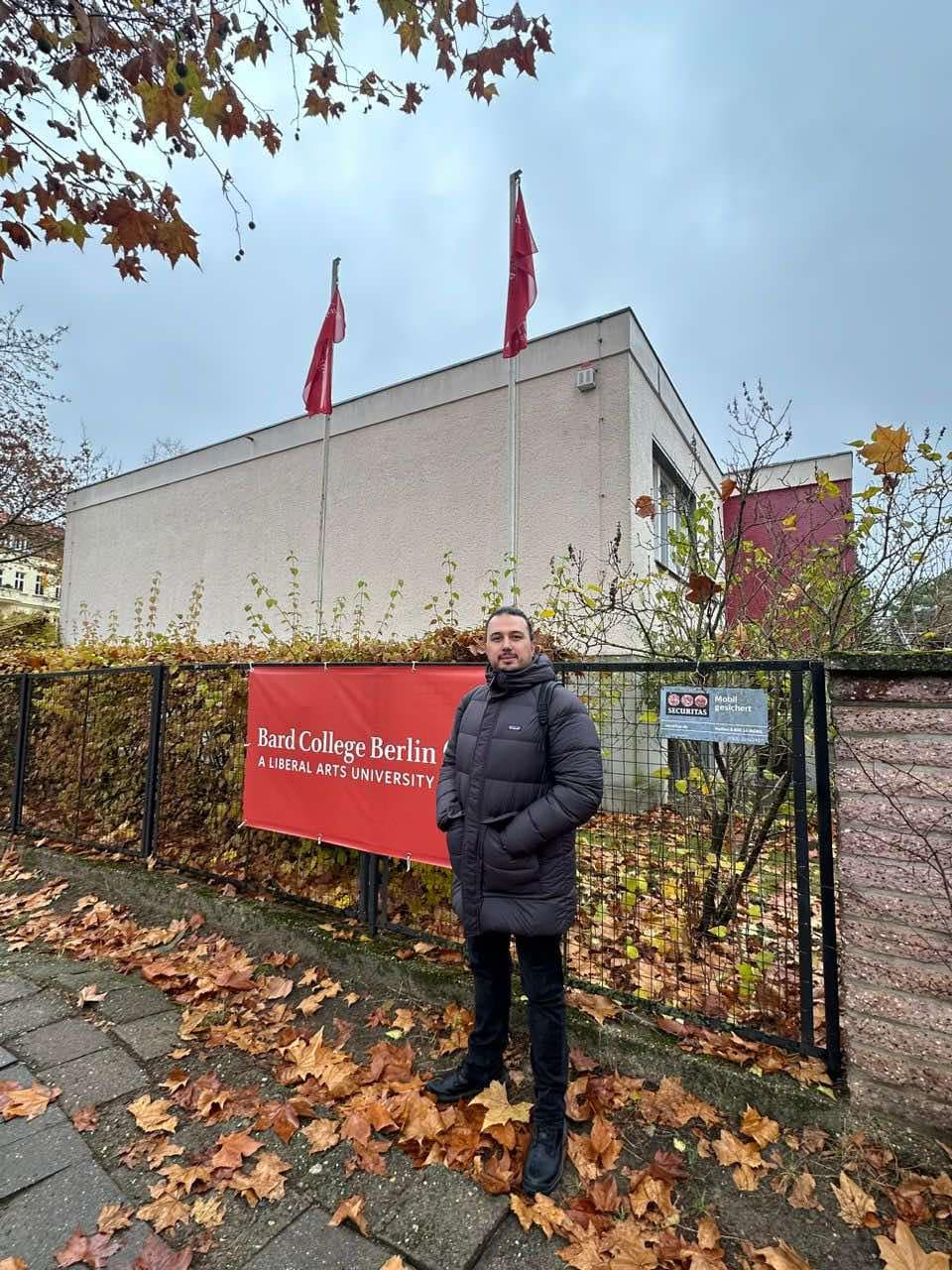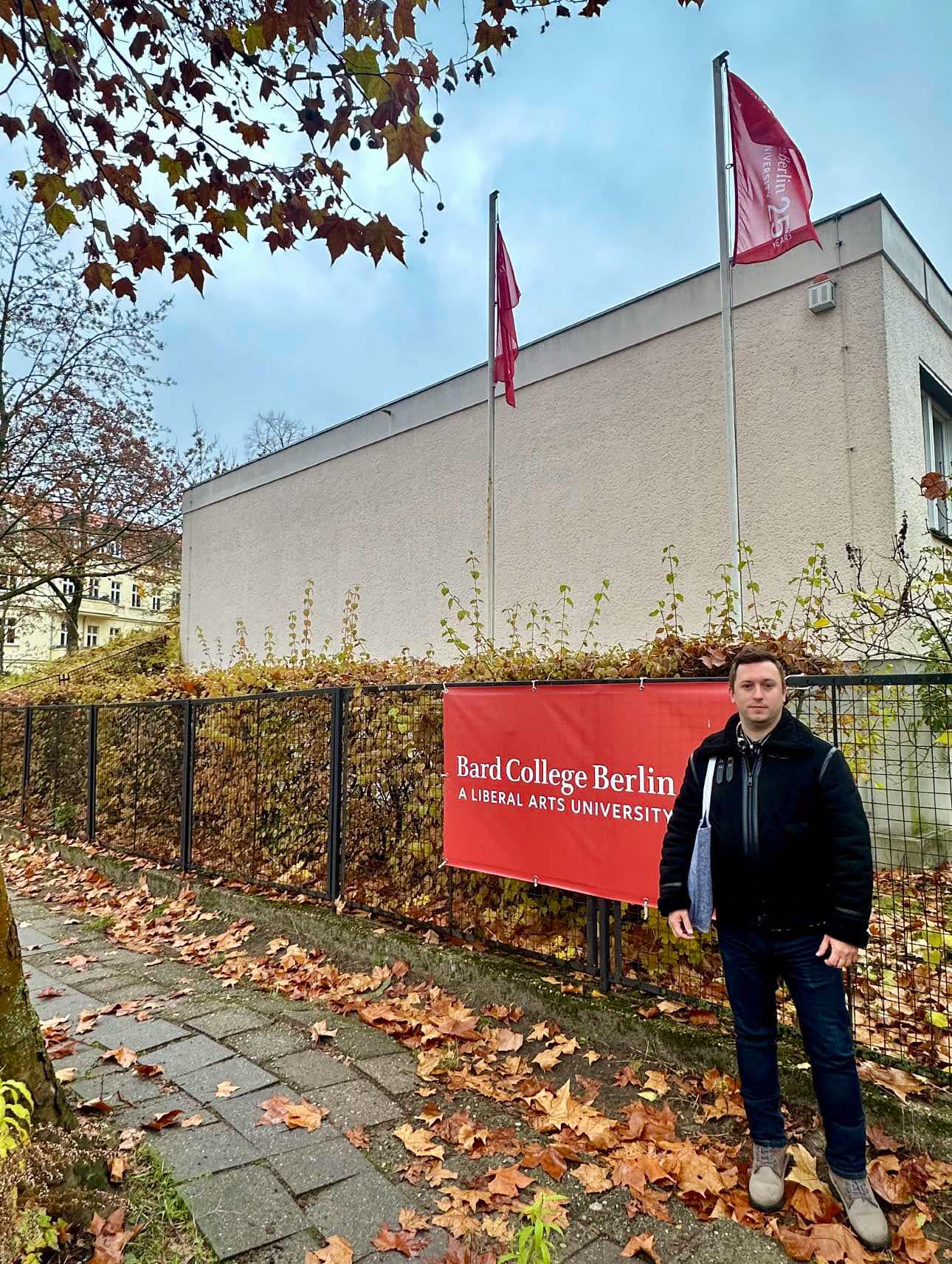ICP Professors Presented Their Ongoing Research in Berlin, Germany
December 9, 2024
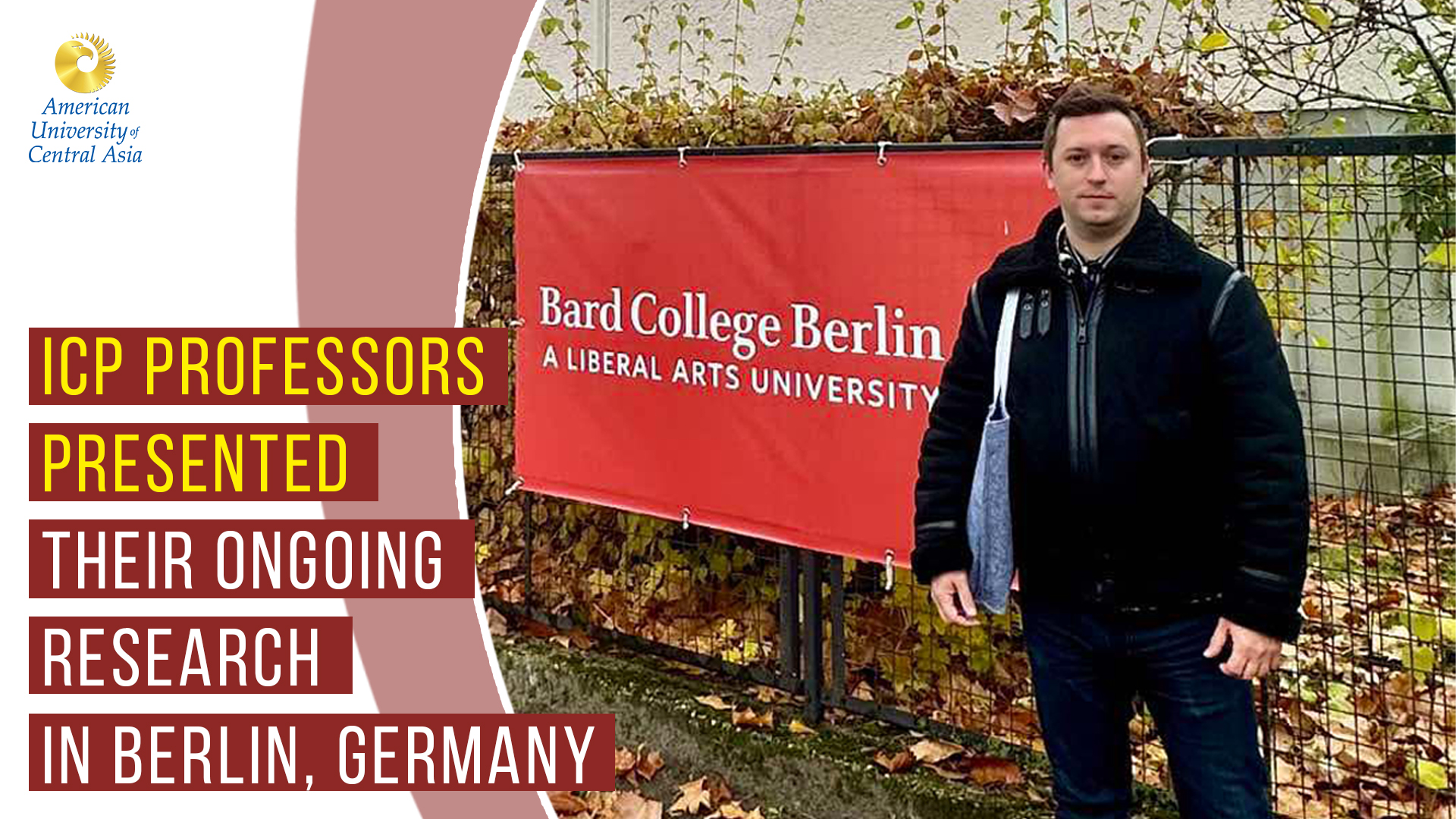
On November 12-13, 2024, Dr. Buğra Güngör, Associate Professor of International and Comparative Politics, and Dr. Görkem Atsungur, Associate Professor of International and Comparative Politics, Chair of the ICP Department, attended the 5th Annual CASNiG (Central Asian Studies Network in Germany) Conference at the Leibniz-Zentrum Moderner Orient (ZMO) in Berlin, Germany. This conference serves as a significant platform for scholars to discuss and analyze various aspects of Central Asian studies, fostering collaboration and knowledge exchange among researchers in the field.
The conference theme was Human-Environment Relations in Central Asia: Flows, Frictions, and Frontiers. In this respect, Dr. Buğra Güngör presented one of his current research projects titled Identity Formation Through Air Pollution: An Autoethnography From Bishkek in the panel “Frontiers of Knowledge Production.” Based on his experience in Bishkek, Dr. Güngör demonstrated how air pollution has shaped his identity in various manifestations through emancipative accounts of identity and autoethnographic stance, aiming to eradicate air pollution in a different form of knowledge dissemination. Dr. Atsungur also presented one of his ongoing research studies on environmental activism in Central Asia on the panel “Environmental Activism and Resistance.” Dr. Atsungur examined the online and offline mobilization strategies and tactics used by environmental activists in Kazakhstan and Kyrgyzstan and their critical role in shaping governmental decisions. His research highlights the need for a collaborative approach involving civil society, governments, and international organizations to address the local, national, and regional environmental challenges.
On November 14, 2024, Dr. Güngör and Dr. Atsungur delivered a public lecture titled ‘’A Comparative Analysis of Turkish and Russian Foreign Aid in Kyrgyzstan: Geopolitical Motivations, Economic Impacts, and Public Perceptions’’ at Bard College Berlin in collaboration with the Open Society University Network. Dr. Güngör and Dr. Atsungur talked about how Türkiye and Russia, which are two of the longstanding donors in Kyrgyzstan, bring out various patterns in geopolitical targets and economic influences from the perspective of their foreign aid sent to Kyrgyzstan. Equally important, Dr. Güngör and Dr. Atsungur presented how locals perceive both aid-receivers.
The visits and research activities of Dr. Güngör and Dr. Atsungur not only enriched their own academic pursuits but also contributed to the broader discourse on environmental politics and foreign aid. Their engagements exemplify the critical role of academic collaboration in fostering research that addresses pressing global issues. As they continue to build on these experiences, the potential for impactful research and enhanced understanding of complex geopolitical landscapes remains significant.
Photo credits to: Marc Beckmann & Bard College Berlin
